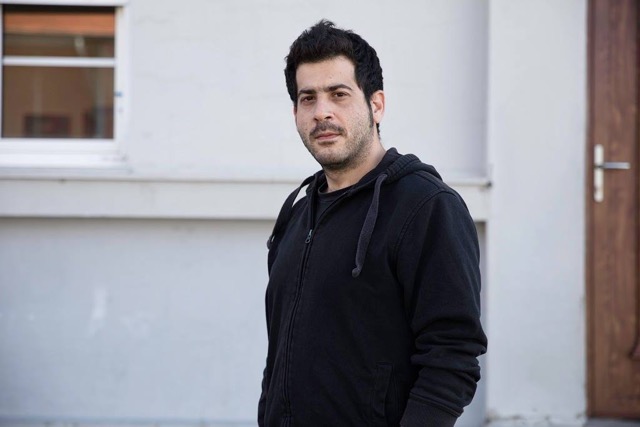Documentary2018/96minCreeceIn 2008, 23-year-old Leonidas climbed on the top of Mount Olympus for the first time.On his return to Athens, a motorcycle accident nearly cost him his life, putting him in a wheelchair.Ten years later, he attempts to go back to the top and his friends will make sure he makes it.What if none of them has ever climbed on a mountain before?A feel-good hymn to the power of will, friendship and ... punk rock.
Reasons to see this movie: The protagonist. The tenacious, stubborn, romantic, punk rocker Leonidas.The camera follows him as he unhesitatingly wheels himself in the chaotic traffic-jammed center of Athens, or as he gets ready for his mountain climbing expedition, on Mt. Chortiatis and continues to follow him on his crazy adventure on the rough steep paths of Olympus.Leonidas is a visionary. He is the captain.He is accompanied by a team of dedicated and just as mad allies, the unlikely crew of a pirate ship, rallying around him, with the sole purpose of getting him to the top and shooting a film while doing it.On the occasion of the 'Back to the Top' premiere - with two sold out screenings- at this year's 20th Thessaloniki Documentary Festival, in which the film won two awards (the ERT Award and the Audience Award), I had the pleasure of talking with its director Stratis Chatzielenoudas.
 |
The 'Back to the Top' director Sratis Chatzielenoudas
|
The film is filled with a sense of community, comradeship and friendship, be it a group of friends, a rock band or a film crew. How important is friendship for Leonidas and for you?Friendship and companionship and that we all together can achieve things, all these were the ideas I wanted to convey through the film.In addition to the dynamic personality of Leonidas, the circle of people around him made a huge impact on me.They are truly connected to each other and they care a lot about Leonidas and he cares for them.The idea of friendship and solidarity is the protagonist of the film, and Leonidas is its flag, the man who never gives up.How important is the music for this film?The original music for the film was written by punk rock veterans Vodka Juniors. We had a creative collaboration and they supported us throughout the production process.
Listen to the original theme here:
What are the plans for the film? When are we going to see it?It is coming soon to the cinemas. I believe in the next two months.We are currently working together with the 'Neaniko Plano' (Youth Plan) organization to subtitle the film for people with disabilities.
Tell me a few words about you. How difficult is it to make films in Greece today?Have you already thought about your next movie?I live and work in Athens. A city I love to hate and to use it in my movies. It's hard to make films in Greece. Everything takes more time because bureaucracy hinders the funding.On the other hand, people of my generation need to express themselves, and everyday I discover new and interesting projects running on low budget or no budget at all!
I am currently in the final draft of my screenplay for my first feature. It's a black street comedy and I' m working on the script with co-writer Takis Papanastasiou and producer Ioanna Petinaraki of Moving Rooster Productions.I am also in the process of researching a feature documentary, but as it is at an early stage, I would not like to reveal much about it.What have you personally gained / learned from this experience?I made a lot of friends , I learned that I have to stop nagging so much and that punks can do anything!That's all Stratis.Thank you so much for this conversation.After its screening - in collaboration with CineDoc, at the Athens International Film Festival and at the Volos and Amaliada Festivals, 'Back to the Top' continues its journey to the Tirana, Chalkida and Ierapetra Festivals and will be heading to the Berlin International Film Festival, where it will get distribution for the theaters in Spring.
For more information on scheduled screenings,visit the official Back to the Top page on Facebook
You can find the Greek version of my review here:











No comments:
Post a Comment